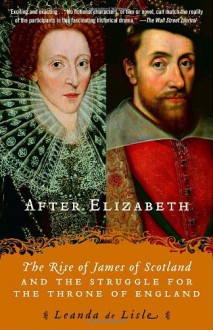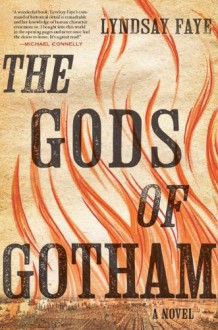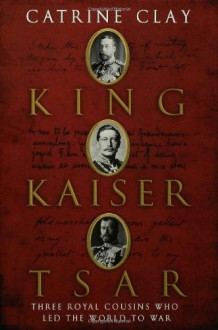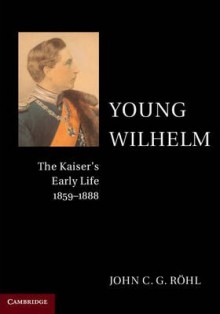
Als ich die Buchdeckel des Romans nach dem Lesen schloss, war ich erheitert, entzückt, verzaubert und auch traurig, weil die Geschichte schon zu Ende war.
Das liegt vor allem auch daran, dass die in der Überschrift angesprochene Hollywoodklamotte mit dem toten Bernie auf seiner Tour nur einen kleinen Teilaspekt dieser wundervollen tragikomischen Familiengeschichte der Prischingers darstellt, die auch noch einen realen problematischen wirtschaftlichen Hintergrund aufweist.
Im Gegenwartserzählstrang ist der Willi-Onkel, der ursprünglich aus Montenegro stammt, im Bett sanft entschlafen. Da er unbedingt in seiner Heimat begraben werden wollte und seine gesamte Familie auf Grund von finanziellen Problemen das Geld für die Überführung nicht aufbringen kann, wird er kurzerhand eingefroren und auf dem Beifahrersitz in einer 12-stündigen Autofahrt (berechnet ohne Pausen) an seinen Geburtsort verfrachtet. Mit von der Partie sind: Lorenz der Neffe seiner drei Tanten, als arbeitsloser Schauspieler auch ständig in finanziellen Kalamitäten, Tante Hedi, die Frau von Willi, die das Geld der Sterbeversicherung ihres Mannes vorab schon durch die Investition in den veganen Onlineshop der Tochter verbrannt hat, Mirl, die nach einer finanziell erfolgreichen Scheidung zwar ihrem Ex das letzte Hemd ausgezogen, dann aber alles Geld an einen Heiratsschwindler verloren hat und Wetti, die als alleinerziehende Mutter einer dunkelhäutigen Tochter ohnehin nie auf der Butterseite der Gesellschaft lebte.
In Rückblenden wird sowohl die Geschichte von Willis Familie im ehemaligen Jugoslawien als auch die der gesamten Prischinger-Mischpoche aufgerollt, und in diesem Fall dreht sich die heitere Tonalität der Gegenwart sehr schnell in eine sehr ernsthafte von bitterer Armut, Trauer, Leid und Katastrophen geprägte Geschichte. Sowohl die Prischingers, aus dem Waldviertel stammend, als auch Willi hatten es in ihrer Kindheit und Jugend nie leicht.
Als Fangirl der Autorin seit ihrem Erstlingswerk Blasmusikpop, das ich auch hier am Blog bereits besprochen habe, hat es mich auch noch besonders gefreut, dass ein Teil der Handlung sogar bei mir zu Hause im Bezirk Krems/Gföhl spielt, da Sepp, der Vater von Lorenz, als Magistratsdirektor der Stadt arbeitet. Da werden die sehr liebevoll beschriebenen Szenen und Lokalitäten, die sich natürlich durch den gesamten Roman ziehen, doppelt so wertvoll. Vea Kaiser hat sich aber auch im Ausland sehr viel Mühe gegeben. Nach ihren Ausführungen im Interview in der Sendung literaTOUR ist sie selbst mit dem Auto auf Onkel Willis Spuren in einer fact finding mission bis nach Montenegro gefahren. Ein Teil der Strecke ist auch nahezu jedem Ostösterreicher wohlbekannt, denn dies ist die Hauptroute für den Urlaub in den Süden, sei es nach Triest, Slowenien oder Kroatien, dort waren fast alle von uns irgendwann einmal schon seit den 80er-Jahren. Als man sich den ersten Urlaub leisten konnte, fuhren die Wiener und Niederösterreicher und Oststeirer nicht nach Italien, sondern nach Jugoslawien, weil das Meer viel schneller zu erreichen und der Urlaub nicht so teuer war.
An der Raststation Gralla, der letzten Labstation vor der slowenischen Grenze, an der man heutzutage immer eine Autobahnvignette kaufen sollte, treffen sie auf einen Bus bulgarischer Pflegerinnen, die natürlich auf Grund ihres Berufes sofort erkennen, dass Onkel Willi am Beifahrersitz nicht schläft, sondern tot ist. Sie finden aber nichts dabei, Verstorbene auf diese Weise auf ihrer letzten Reise nach Hause zu transportieren, haben sie dies aus Geldmangel auch schon mehrmals mit Ihrem Bus praktiziert. Als Profis wissen sie sich zudem zu helfen und verschaffen dem gefrorenen Onkel Willi ein besseres Make-up, das ihn gesünder und frischer erscheinen lässt.
Die Figuren sind genauso wie die beschriebenen Orte wundervoll und sehr tief entwickelt, jeder der Protagonisten hat so seine schrägen Marotten, Probleme und Traumata, die sich aus der Vergangenheit schlüssig nach und nach ergeben. Zudem werfen einige Familienmitglieder sehr entwaffnend mit hintergründigen Weisheiten um sich.
So demonstriert Tante Wetti am furiosesten, wie man eine Person of Color (POC) auch beschreiben kann, entwaffnet und entlarvt somit vorab schon jegliche rassistische Anwandlung. Tante Wetti rockt sowieso mit ihren pointierten Aussagen den gesamten Roman und ist meine absoulte Lieblingsfigur von allen Personen, von denen alle irgendwie – zumindest ein bisschen – symphatisch gezeichnet wurden.
Mein Kind ist ein Mensch mit etwas mehr Melanin in der Basalschicht ihrer Epidermis als der milchrahmstrudelfarbene Österreicher, wieso beschäftigt das die Leute so?
Die Handlung in der Gegenwart strotzt nur so von wundervoller absurder Situationskomik und gipfelt in einem ans Herz gehenden Happy End. Zudem hält auch die Familiengeschichte von Willi aus der Vergangenheit einige überraschende Wendungen parat. Der Roman ist also nicht nur lustig und traurig, sondern zudem auch hintergründig, nachdenklich machend und teilweise richtig spannend.
Fazit: Für mich ein genialer Buchstoffhöhepunkt 2019 und trotz der vielen guten Bücher, die ich heuer schon lesen durfte, bis jetzt Number One gemeinsam mit einem anderen Werk, das das genaue Gegenteil dieses optimistischen Romans darstellt. Ich habe lange nach einem Kritikpunkt gesucht, aber für mich einfach keinen gefunden.
Ach ja die Manen im Untertitel des Romans sind kein Orthografiefehler sondern die altrömischen Geister der toten Verwandten, die aus dem Jenseits auf ihre lebende Familie aufpassen und alles zum Guten wenden, wenn sie ordentlich begraben werden. Diese Aufgabe hat der verblichene Onkel Willi sowas von übererfüllt, dass es eine Freude ist.


 Log in with Facebook
Log in with Facebook 

















